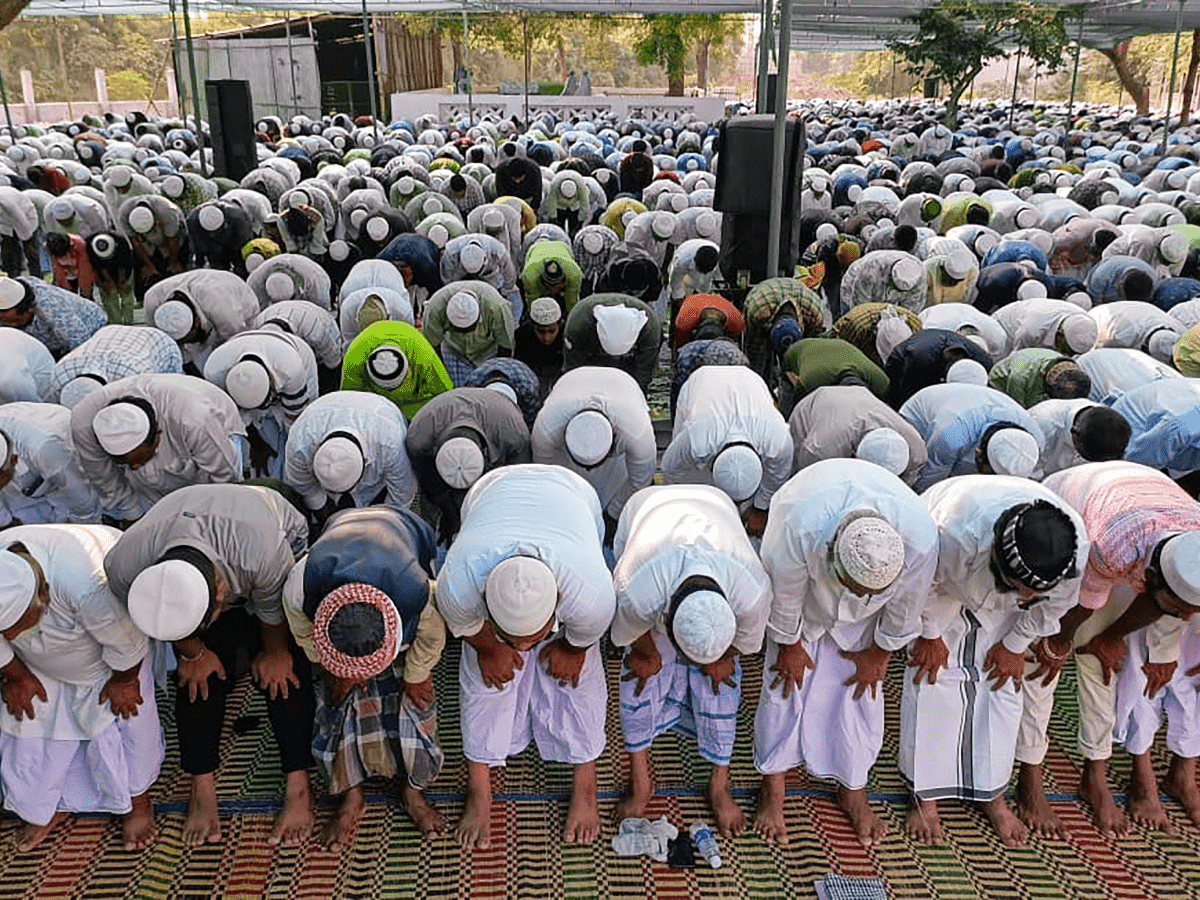
New Delhi: Chinese authorities banned most Uyghurs praying in mosques — and even in their homes — during the Eid al-Fitr holiday, marking the end of the Islamic holy month of Ramadan, in many parts of the Xinjiang Uyghur Autonomous Region, residents and police said, the media reported.
People aged 60 and older were allowed to pray in a local mosque under heavy police surveillance during Eid, Radio Free Asia reported.
Since 2017, China has restricted or banned ethnic customs and religious rituals among the mostly Muslim Uyghurs in an effort to stamp out “religious extremism”, RFA reported.
During this year’s Eid, the most important Muslim holiday, authorities in Xinjiang patrolled city streets and searched houses to prevent people from secretly praying inside their homes, sources said, RFA reported.
An administrative staffer from Yarkowruk town in Akesu Prefecture said one mosque there was open for Eid prayers.
“Our police officers went to the mosque to watch the people,” the employee said. “I don’t know if people needed permission to go to the mosque because I did not go there.”
Likewise, only one mosque was open for Eid prayers in Bulung town, Bay county, an officer at the local police station said, though only residents over 60 years old were allowed to pray if they wanted.
The government issued a notice that people younger than 60 could not pray on the Eid holiday, he added, RFA reported.
Only a dozen Uyghur elders in Bulung attended Eid prayers in a mosque as three police officers and several auxiliary police staffers observed and wrote down the Uyghurs’ names, said the officer from the town’s police station.
“The mosque was open yesterday, and we went there to surveil people,” the police officer said, adding that he told residents under 60 not to go to the mosque.
